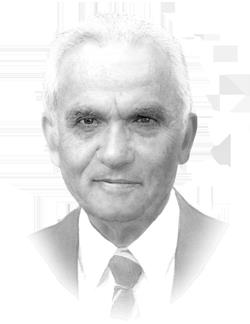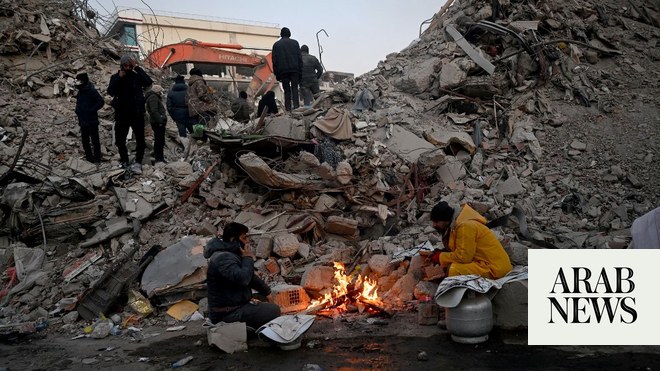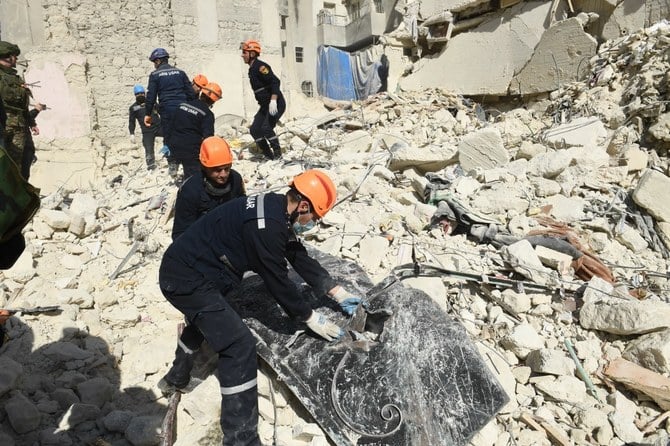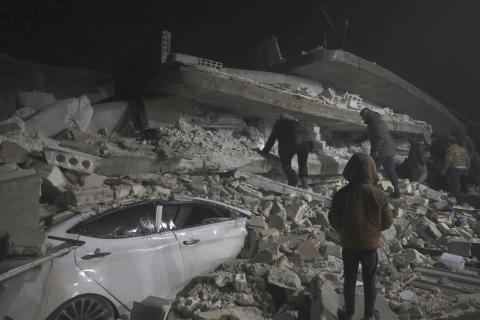
As a matter of routine, a summit at the ministerial level is preceded by a lower-level meeting to identify the subjects to be debated. The Turkish Foreign Ministry announced earlier this month that the deputy foreign ministers of Turkiye, Russia, Syria and Iran would meet on March 15-16 ahead of planned talks at the ministerial level. However, the initial meeting was postponed “for technical reasons.”
All preparations were completed, but it appears that Syrian President Bashar Assad asked that “the relations should reach a stage where Turkiye is clearly and unambiguously ready for the full withdrawal of the Turkish military from Syrian territory, for the cessation of supporting terrorism and restoration of the situation to the state it was before the start of the Syrian war.”
As these comments came after Assad had a meeting with Russian President Vladimir Putin, we may presume that they had Putin’s blessing.
This attitude does not, however, preclude the holding of preparatory meetings at the level of ministers or deputy ministers. Syrian Deputy Foreign Minister Ayman Sousan has in fact said that the Moscow meeting is “still under discussion.”
Putin has been trying to push Turkiye and Syria to revive their relations. It was common knowledge that the side that was dragging its feet was Damascus, but it was still thought that preliminary talks could be held.
On the Turkish side, President Recep Tayyip Erdogan has never given up on his plan to carry out a new military operation in Syria. He has been repeating it for more than a year, but now it has become like a political commitment that has to be met before the forthcoming elections. Whether such a promise can be fulfilled under the present circumstances is another issue. Even if it does take place, it would be a symbolic act to give the impression that Erdogan had fulfilled his promise.
Turkiye and Syria are aware that their present relations are harming the interests of both sides, but it was Erdogan who used harsh rhetoric against Assad, referring to him as a murderer and a terrorist. He previously demanded Assad’s removal before UN-sponsored talks on Syria could take place in Geneva.
As time went by, Erdogan gave signals that he was willing to talk with the Syrian leader, saying that there should not be enmity between the two neighbors.
Another issue is the number of Syrian refugees currently residing in Turkiye. Their number is estimated to be about 3.7 million, but more realistic predictions put this figure much higher. To send them back to their country would raise a number of problems. Many Syrian refugees have invested in or established business in Turkiye. To undo their businesses would cause several problems. Furthermore, they may have committed crimes in Syria and the Syrian authorities may not be prepared to pardon them. Even if they were to be pardoned, to transfer their business to Syria may also cost money.
Turkiye and Syria are aware that their present relations are harming the interests of both sides.
Yasar Yakis
The opposition coalition parties in Turkiye claim that they will be able to persuade the bulk of the refugees to return, but a more realistic guess is that millions of Syrians will find a way to stay in Turkiye. Many of them were born and have grown up in Turkiye. Some may not speak Arabic. Therefore, there will be a lost generation.
Some 18,000 Syrians are estimated to have returned home as a result of last month’s earthquakes in Turkiye. This trend may continue, but the number of those leaving may not reach the millions, as the Turkish government was expecting. The remains of about 1,600 Syrian earthquake victims have been sent back to Syria to be buried in their family cemeteries.
At the end of a ministerial Cabinet meeting last May, Erdogan said that the Turkish government, in cooperation with international aid organizations, would build 200,000 briquette houses in 13 different locations in northern Syria, complete with hospitals, schools and industrial and agricultural areas.
On the same lines, the Turkish Disaster and Emergency Management Authority announced in September that the Ankara government had completed the construction of 68,000 briquette houses — out of 86,000 planned — in 284 locations in Syria, again with the financial support of international aid organizations.
Now that Turkiye is in dire need of dwellings as a result of the cataclysmic earthquakes that devastated 10 southern provinces of the country last month, we will have to wait and see how the government copes with such problems on the threshold of the elections. As if that was not enough, hundreds of tents were flooded last week as a result of heavy rains.
Any measure that is taken by the government will be harshly criticized by the opposition parties in the pre-election weeks and months.
A mountain of problems waits to be negotiated between Turkiye and Syria, but both sides are more focused on scoring points.
• Yasar Yakis is a former foreign minister of Turkiye and founding member of the ruling AK Party. Twitter: @yakis_yasar
Disclaimer: Views expressed by writers in this section are their own and do not necessarily reflect Arab News" point of view












